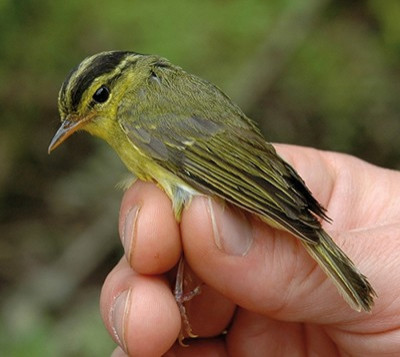Snub-Nosed Monkey, Self-Cloning Lizard Among 208 New Species Found in Mekong [PHOTOS]

A snub-nosed monkey that hides its head between its knees to prevent rain from running into its nose and a self-cloning lizard, an all-female species that reproduces through cloning, are two of the 208 new species researchers recently found in the Mekong region.
The conservation organization World Wide Fund for Nature, or the WWF, released a report of the findings on Monday.
The new species include a bird, two mammals, seven amphibians, 25 fish, 28 reptiles and 145 plants that were all found within the Greater Mekong region of Southeast Asia.
The Greater Mekong region encompasses Cambodia, Laos, Myanmar, Thailand, Vietnam and Yunnan, a south-western Chinese province. It possesses some of the most diverse species of plants and animals. These species are also some the most endangered.
Biodiversity isn't evenly distributed around the planet - some areas [are] more blessed than others, said Stuart Chapman, director of the WWF Greater Mekong Program, as reported by MSNBC.
That report noted that political conflict and war caused Mekong to be off limits to researchers, which is why is why all these discoveries are being made.
The WWF has said that the Mekong's wild places and wildlife are now pressured by rapid, unsustainable development and climate change.
MSNBC reported that a scientist found the self-cloning lizards in a cage outside of a restaurant in the BaRia-Vung Tau province of Vietnam. They were about to become someone's dinner.
The WWF has warned that the Greater Mekong's valuable natural assets and species will continue to disappear without faster efforts to green the region's economies.
WWF has recently confirmed the extinction of the Javan rhino in Vietnam and has said it is a tragic indicator of the decline of biodiversity in the region.
This report is an affirmation of what we know - that the Greater Mekong offers unparalleled diversity in nature-and what must be done, Rebecca Ng of WWF's Greater Mekong Program stated in a press release. The rich natural treasures of the region could be lost if regional governments don't recognize that protecting biodiversity is an investment to ensure long-term sustainability, especially in the face of global environmental change.
You can read the pdf report below:
Greater Mekong Species Report Web Ready Version Nov 14 2011-1-1
© Copyright IBTimes 2025. All rights reserved.





















